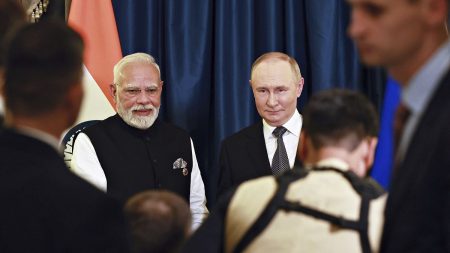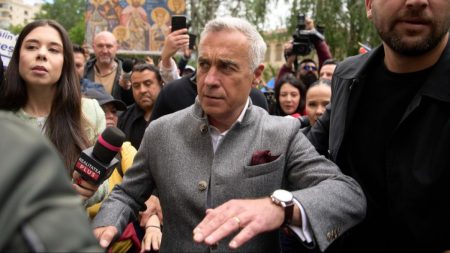Summarize this content to 2000 words in 6 paragraphs in Arabic This article was originally published in Spanish
As discontent and distrust towards politicians grows, new political outsiders are trying to win over jaded voters who tend to stay at home during European elections.
ADVERTISEMENTAlvise Pérez, a political rabble-rouser and social media personality in Spain, managed to collect the 15,000 signatures needed to run in the European elections in just two weeks. He did so by mobilising the hundreds of thousands of followers he has accumulated on his Telegram and Instagram channels.For years, Luis “Alvise” Pérez Fernández has built up a huge virtual community around his controversial videos in which he denounces the alleged corruption of politicians and the institutional and moral deterioration he believes Spain and Europe are suffering.An agitator of protests, such as those against Pedro Sánchez’s ruling socialist party during the approval of the amnesty law for Carles Puigdemont, his stark speeches have earned him the nickname of “the scourge of politicians”.Many of his ideas resonate with those of the far right, but Alvise argues that he attacks all political parties regardless of ideology.”What we are interested in is corruption and we don’t care what colour they wear,” he previously said.The name of Alvise’s candidacy, Se acabó la fiesta — The Party Is Over, has attracted attention in Spain as it has managed to break into the polls for the European elections, potentially landing one parliamentary member in Strasbourg.”I decided to start a political party because the alternative was to go and live on a hill. The rotten society in big European cities doesn’t encourage you to do anything else,” Alvise Pérez told Euronews.The candidate looks to other political outsiders, such as Javier Milei in Argentina and Nayib Bukele in El Salvador, who have achieved success in their countries by promising to demolish the system from the outside.”Corruption has many legs: political, media and judicial. There is an open war against everything that has made this system no longer for Spaniards, but for a corrupt elite,” he said.A digital and guerrilla campaignAlvise has created a list for the European elections with members of his own virtual community and promises to raffle his salary as an MEP every month among his supporters. He even promised a referendum on Spain’s exit from the EU if his government does not renegotiate its relationship with Brussels.Pérez’s popularity has been forged largely in the digital sphere. With more than two million subscribers and up to five million daily views on his social networks, Alvise rests his election campaign on the loyalty of his community.”People have financed themselves in small groups, they have organised themselves,” the candidate explained, highlighting the active participation of his supporters in the campaign.Instead of spending money on traditional mass events, Pérez has opted for a more austere and direct campaign. He has asked his fans to print and distribute their own posters while prioritising social media to reach out to voters.Challenge of the abstentionist votePérez seeks to capture the millions of Spaniards who feel alienated by the political system and who, for the most part, do not vote. “I think there are millions of Spaniards who are fed up with all these people and who want to put their trust in a person who has spent five years digging up dirt on them,” he told Euronews.In a country where almost 50% of the electorate abstain in the European elections, Pérez sees an opportunity to mobilise those disenchanted voters, though this is not an easy task.ADVERTISEMENTAccording to Jaime Coulbois, researcher at the Department of Political Science at the Autonomous University of Madrid (UAM), “the European elections are what in political jargon we call second-order elections. In other words, they are elections in which there is less concern for the result, less interest and, therefore, always lower turnout.”However, precisely because of this, the useful vote tends to be less prevalent and allows voters to support less conventional options. “Second-order elections have much less useful voting, precisely because they are perceived as less important, people dare to vote for slightly more fanciful options,” added Coulbois.But for the UAM political scientist, “although we might think that this is a time for voters who do not feel represented by traditional parties that normally do not vote to go out and vote, in practice what usually happens is that these people continue to stay at home.”As for anti-establishment candidates,” Coulbois continued: they “simply protest against everything and pretend to present a candidacy that is against everything.”ADVERTISEMENT”It’s something that was very successful, typically in the 2008 crisis and the Great Recession that lasted for the next few years. We saw a lot of citizens voting for anything against the establishment. However, specifically in Spain, I would say that that moment has passed.”Iustitia Europa, the anti-COVID certificate candidacyIn parallel, Spain’s Iustitia Europa party also wants to capture votes from those dissatisfied with the system. Its candidate, Luis María Pardo, known for his activism against restrictions during the COVID-19 pandemic, criticised the lockdown restrictions and the “coercion” of vaccinations against the virus. “The COVID certificate was used as a method of coercing people into vaccination. It was an instrument that was being used for perverse purposes,” Pardo told Euronews, who believes that citizens are often limited in their rights by the actions of politicians and the EU’s impositions.”If politicians change the rules of the game and the judiciary applies the rules of the politicians, where do citizens have to go? To the institutions to change the rules of the game so that people’s human rights are never again violated”, said the Iustitia Europa candidate.ADVERTISEMENTIustitia Europa emphasises the need for citizens to understand the relevance of the European elections, where regulations affecting many aspects of everyday life are decided. “We believe that there is an important pocket of critical mass that over the years has seen that it has not had any kind of representation,” Pardo said.
رائح الآن
rewrite this title in Arabic Alvise Perez: The Spanish outsider wanting to capture discontent in European elections
مقالات ذات صلة
مال واعمال
مواضيع رائجة
النشرة البريدية
اشترك للحصول على اخر الأخبار لحظة بلحظة الى بريدك الإلكتروني.
© 2026 جلوب تايم لاين. جميع الحقوق محفوظة.















